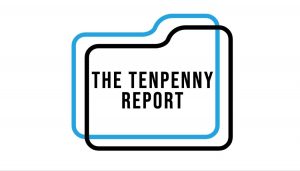This week, we bring you the conclusion to Maryam’s Dengue Fever research. Part 3 starts with a deep dive into the outbreaks in Brazil. Here are Part 1 and Part 2 if you missed them.
Brazil
“Not since the darkest days of the COVID-19 pandemic, when hospital systems all over this country ruptured under the weight of the disease, has Brazil witnessed such scenes,” writes MSN.
At the beginning of March 2024, Rio de Janeiro declared a public health emergency due to a dengue fever outbreak. In Brazil too, the officials state the cause is climate change– hot temperatures associated have contributed to an expansion of the disease into the southernmost region of Brazil, which was once too cold.
More than 1 million cases of the viral, mosquito-spread infection have been reported in the first two months of this year — 226% more than were reported in the same period in 2023. The government invested $1.5 billion to combat Dengue.
The thing is that in August 2023, the UN’s World Mosquito Program began releasing billions of gene-edited clouds of lab-grown Aedes aegypti mosquitoes infected with Wolbachia bacteria in five cities – in poor favelas no doubt. The unleashing of mutant mosquitoes will occur over 10 years in a bid to eradicate dengue fever in the country and protect up to 70 million people from dengue fever.
The dramatic spike in dengue cases prompted Brazil to purchase 5.2 million doses of the dengue vaccine Qdenga, developed by Japanese drugmaker Takeda with another 1.32m doses provided at no cost to the government, according to a ministry statement.
Brazil has already started to vaccinate children aged 10-14 with Qdenga. They are the first country to roll out a public vaccination campaign against dengue, and more than three million people are due to receive a jab in 2024. Additionally, the ‘Against Dengue Every Day’ campaign was launched, distributing repellents, stickers, bandanas, and hats with warnings about the disease.’
“Very few people are being vaccinated. To have an impact on the rates, we would need to have mass vaccination,” says Ana Lúcia de Oliveira, an infectious disease specialist at the Federal University of Mato Grosso do Sul in Campo Grande, Brazil.
But we know widespread vaccination won’t defeat the disease – aux contraire – and besides, basic sanitation problems have not even been addressed.
“I’ve been working with dengue since 1997,” said Kleber Luz, who coordinates the research of A. aegypti-transmitted diseases at the Brazilian Society of Epidemiology.“And I’ve never seen another year when all four are circulating at the same time.”
According to Researcher SuperSally (Clark) who lives in the Philippines, dengue as an illness can often be asymptomatic. She suspects what is happening in Brazil is that the asymptomatic cases are now symptomatic due to immune destruction. “More people sick means a bigger infection reservoir and more cases.”
Dengue Vaccine Du Jour
Dengue has four distinct ‘serotypes’ (DENV-1, DENV-2, DENV-3, and DENV-4) and protection from any two of them is needed to reduce the chance of serious disease. After a second infection or vaccination followed by a breakthrough infection, people are typically protected against all four.
A paper in Nature suggests that after a dengue infection, the immune system is hyped up enough to protect against a second infection with any serotype for one to two years.
The Bill & Melinda Gates Foundation who invested $55 million to the International Vaccine Institute (IVI) to support the Pediatric Dengue Vaccine Initiative (PDVI) also invested millions into Takeda. It turns out that now-deceased Tadataka Yamada, a pioneer in drug and vaccine development who helped forge numerous biotech companies, spent five years at the Bill and Melinda Gates Foundation as head of global health. Yamada left Gates to become chief medical and scientific officer and executive vice president of Tokyo-based Takeda Pharmaceuticals.
Do you get what is going on here? Bill Gates and his multi-national foundation, are involved in all steps of this Hegalian equation. And what’s worse, the dengue crisis got worse, not better once these gene-edited mosquitos were deployed. What happens when you mix a vaccine into the equation?
WHO experts recommended the use of Takeda’s dengue vaccine QDENGA® (Dengue Tetravalent Vaccine [Live, Attenuated]) (TAK-003) on Oct 9, 2023, and was cleared for children aged 6 to 16 years of age. The vaccine is particularly significant because it is the first for people who have not previously contracted dengue. The virus infects up to 400 million people a year. QDENGA is currently available for children and adults in the private market in countries in Europe, Indonesia, and Brazil, and will be available in Argentina and Thailand soon.
Qdenga is a two-dose live attenuated vaccine that uses DENV-2 as a backbone. Genes for key proteins from the other three serotypes are engineered into this backbone. A Takeda spokesperson says that clinical-trial data have been collected from more than 28,000 people over 4.5 years, which is in line with World Health Organization recommendations. The data show that Qdenga is safe, regardless of past dengue exposure, the spokesperson says. And the European Medicines Agency (EMA) says there is no clear evidence of a higher risk of severe disease in people who have not been infected previously.
The Indonesian drug regulator approved the vaccine for use without testing for previous exposure in August. Europe’s drug regulator is also considering approving the vaccine for use without testing.
https://www.ncbi.nlm.nih.gov/pmc/articles/PMC7825316/#B103-pathogens-10-00039
According to an NIH document I found, there are currently two main approaches that use Wolbachia:
“I—the replacement strategy that releases males and females of Ae. aegypti transfected with Wolbachia to replace the natural population with one that is refractory to several arboviruses; II—the second approach is conducted by releasing male mosquitoes infected with Wolbachia seeking to induce cytoplasmic incompatibility (CI) and reduce the mosquito population. To effectively deploy either strategy, researchers require precise information about any potential target mosquito species infected naturally by Wolbachia before and during any intervention, since it might have unexpected effects on the strategy employed.
Researchers are also concerned because, according to the trial data, vaccinated individuals who had never had dengue before their jab but were infected with DENV-3 two years afterward were more likely to end up in the hospital than were people who had not been vaccinated.
The possibility of antibody-dependent enhancement ADE, in which vaccination induces antibodies that make a subsequent infection worse, is fueling concerns. ADE, also called “pathogenic priming,” cannot be ruled out based on clinical trial data gathered so far.
A vaccine that does not protect against all four serotypes in people who have never been infected could induce a similar phenomenon, says Leah Katzelnick, an epidemiologist at the US National Institutes of Health in Bethesda, Maryland.
The data only provide evidence for the vaccine conferring lasting protection against one serotype, says Aravinda de Silva, a virologist at the University of North Carolina at Chapel Hill who has collaborated with Takeda and other dengue-vaccine developers, which means it’s possible that a breakthrough infection with serotypes 1, 3, or 4 could cause ADE.
“I was really disappointed and surprised that the Indonesian government approved the vaccine without restrictions,” says de Silva.”These observations are warning signs.”
Lessons from the past|| Dengvaxia Disaster
“What’s happening with QDENGA is like a déjà vu to what happened in the Philippines with the Dengue Fever rollout back then,” says Researcher SuperSally (Clark).
ADE is what happened when Deng-vaxia was first used, which is the only other approved vaccine developed by Sanofi in Paris. The French pharmaceutical company spent 20 years — and about $2 billion — to develop Dengvaxia but it can only be given to people who have already been infected. The Philippines becomes the first Asian country to approve and rolled out across the Philippines in 2016. Clinical trials suggested that the vaccine was safe before it was rolled out, but scientists raised concerns after they reviewed the data on hospitalizations in young kids.
In individuals with no history of infection, Dengvaxia increased the risk of severe disease, including haemorrhagic fever, likely caused by ADE.
After a period, people are protected only from the serotype to which they were first exposed and are at increased risk of ADE when infected with other serotypes.
A vaccine that does not protect against all four serotypes in people who have never been infected could also induce ADE.
Sanofi found that the vaccine, in children who’ve never been exposed to dengue before, actually made them worse when they were then exposed to the natural virus. Much worse. Causing something called dengue hemorrhagic shock syndrome. Children died because, vaccinated children who were less than 9 years of age and who had never been exposed to dengue before were more likely to die if they’d been vaccinated than if they hadn’t been vaccinated.
Writes Children Health Defense: “Why then did a panel at the World Health Organization (WHO) go ahead and declare Dengvaxia safe and recommend it for children aged 9 and older? Was the scientific community unaware of potential risks and shortcomings? Did the deaths of children in the Philippines come as a complete surprise?”
The school vaccine program was suspended by December 2017. Subsequently, the use of this vaccine was banned in the Philippines.
“There are currently 205 Dengue Fever death reports in VAERS,” explains Albert Benavides or WelcomeTheEagle of Vaersaware.com “Interesting that literally all 286 total reports did not start appearing in VAERS until 2021 when the world was so focused on Covid-19 reports. 99.9% of the death reports came from the Philippines where the death happened between 2016-2018. At the time that it was administered in the Philippines, it was given in a series of 3 doses.
The legal case over Dengvaxia is not over. This is mostly being handled by the Public Attorney’s office, PAO. People who received Dengvaxia are still dying from severe dengue up to the present. On Dec 14, 2023 PAO has already autopsied a total of 166 Dengvaxia victims (many children) and has filed criminal cases before the Department of Justice (DOJ). The following article sets out the timeline of administration.
Based on lag days from the vaccination date to the death date and symptoms/diagnosis, this vaccine seemed highly toxic, adds Benavides. Presumably, healthy young children were dying or being injured sometimes almost immediately within days or weeks. Many within months and definitely 365 days died or were badly injured.
“So many of these vaccinated kids died of Dengue or became infected with Dengue, it makes me reasonably cynical to believe this jab gave them dengue or allowed them to acquire symptoms the medical establishment could attribute to a disease called dengue fever. Considering symptoms and a dosing schedule of 3 doses, 6 months apart it would be the perfect dosing regime to beat up anybody’s immune system.
++++++++++++++++++++++++++++++++++++++++++++++++++++++++++++++++++++
 Like what you’re reading on The Tenpenny Report? Share this article with your friends. Help us grow.
Like what you’re reading on The Tenpenny Report? Share this article with your friends. Help us grow.
Get more of Dr. Tenpenny’s voice of reason at her website.
Join our list here
Make a donation here (and thank you!)
++++++++++++++++++++++++++++++++++++++++++++++++++++++++++++++++++++
Maryam Henein is an investigative journalist, and founder, and editor-in-chief of the health magazine and marketplace HoneyColony. Read her Substack here. She is also a functional medicine consultant/coach, and the director of the award-winning documentary film Vanishing of the Bees, narrated by Elliot Page. Follow her on Twitter @maryamhenein. Email her: maryam@honeycolony.com.

